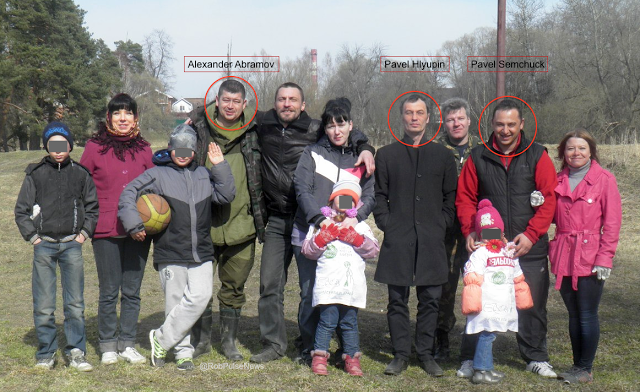Briton Transformed from Obscure 'Sex Blogger' to Decorated Kremlin ‘Information Soldier’
Robert Schultz @RobPulseNews
Graham Phillips (center) escorted by Russia's DNR soldiers after being wounded in Ukraine, Nov 24th 2014 |
His lack of experience and poise did not deter Russian mainstream media, including RT (formerly Russia Today), and Zvezda (a Russian MoD outlet) from utilizing Phillips as their “stringer” and reporter. In fact, his bumbling ways provided a great cover for Russia’s FSB going in and out of Ukraine, under the pretense of delivering “humanitarian aid.”
For his participation, the blundering pseudo-journalist received an FSB medal in Russia, and ongoing protection by armed guards while ‘reporting’ for Russia’s MoD in the Russian-occupied Donbas under the guise of an ‘independent western journalist.’ Furthermore, in order to do this work he was undoubtedly assisted, particularly during his multiple illegal entries from Russia to Ukraine.
|
|
|
To disguise the true nature of his activities, Phillips uses common Russian propaganda techniques, to which he was most likely introduced by his FSB contacts. He mixes doses of truth with blatant fiction, effectively polluting the information space. He overzealously takes propaganda tactics to the extremes, whilst also attempting to maintain the appearance of a goofy “gonzo journalist” searching for truth. Not being taken seriously is a useful tool for those who seek to weaken their enemy’s defenses.
Russia's FSB and GRU (military intelligence) are mostly likely assigning Phillips ‘mini-ops’ to attack western organizations, journalists, reporters and researchers who debunk the Kremlin’s propaganda narrative. He uses four main tactical techniques to counter western criticisms: “dismiss the critic, distort the facts, distract from the main issue and dismay the audience.”
Individuals who criticize and expose his biased “reporting” and other pro-Kremlin propaganda, become targets of personal abuse, often receiving accompanying personal threats from trolls and sympathizers on social media. Organizations which question Russia’s methods are branded as biased, or incompetent. All of the above are highly likely to have social media accounts and/or websites targeted for attack by a network of supporting pro-Kremlin trolls, sympathizers, hackers, and even by the FSB.
This abuse of Kremlin critics is subsequently used by Phillips to concoct further propaganda, and the cycle repeats. These predictable Russian tactics he employs serve to create a haze of disinformation, obscuring truth and allowing Phillips to conceal his own pro-Kremlin activities behind the veil of amateur reporting.
This pretense and appearance of an ‘impartial, independent, western journalist’ arguably provides Phillips with the perfect ‘cover’ for his nefarious activities, which is the lynchpin that he must maintain. Indeed, he has consistently demonstrated via his social media posts, desperation to maintain this convenient perception at all costs. These ongoing cover-up efforts have increased since the Russian MoD's public announcement in March 2015, that Russian journalists are ‘weaponized’ and are effectively considered to be Russia’s military assets or ‘information soldiers.’
Unmasked as nothing more than a biased, paid, coached and controlled participant, activist and propagandist, tasked with deceiving western audiences, Phillips would arguably become less useful for Moscow as a semi-believable western reporter ‘on the ground’ in Ukraine.
The following report provides a comprehensive insight into Phillips’ alleged ties to the FSB and other organizations, covertly participating in Putin’s "special war" that is currently being waged against Ukraine.

Click here > FULL REPORT
Infamous British blogger Graham Phillips @GrahamWP_UK exposed as a tool of Russia's security service: http://t.co/DYYnab0Kj2
— Anton Shekhovtsov (@A_SHEKH0VTS0V) July 15, 2015


